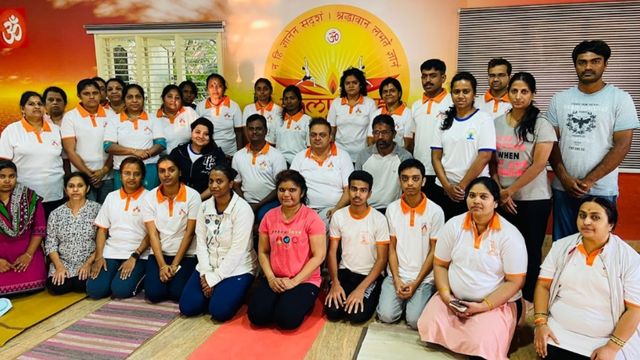Most of us value compassion and agree that it is important both in our own lives as well as in society more generally. Undeniably, compassion is also part of our everyday experience of being human. Human beings are social animals and they thrive in communities. The present-day lifestyle of many doesn’t allow for socializing. There may be apps that bring people together but the real value of community is much greater than selective meetings. To build trust and confidence in people, we need to start trusting ourselves. We must understand the importance of compassion in our lives and also its impact on other’s life. If you are living in a community, you should be ever-ready to help others, to love them and to make them feel like a family.
Many people from all over the world are slowly awakening to the quality of compassion. They’re gathering the tools of better living to reach their own heart. And it’s working too! Those of us who are deeply grounded in our bodies always want to help others. To increase our kindness qualities, we need to know that we all share the same planet. And true kindness is what helps us know that the stranger is family too. Mindfulness practiced with a deep knowledge of our interdependence can help us reach true compassion for our communities. When compassion arises in us in the face of need or suffering, three things happen almost instantaneously: We perceive the other’s suffering or need; we emotionally connect with that need or suffering; and we respond instinctively by wishing to see that situation relieved. Compassion may lead to action; it is a readiness to help or to want to do something ourselves about another person’s situation. Today, scientists are beginning to map the neurological basis of compassion and explore its deep evolutionary roots.
Now, can you change immediately, without any compulsion? If you don’t change now you will never change. There is no change within the field of time. Change is outside the field of time, because any change within the field of time is merely a modification of the pattern, or a revolt against a particular pattern in order to establish a new one. So I think the problem is not how the enlightened individual will affect society. I am using that word enlightened in the simplest, most ordinary sense, to describe one who thinks clearly and sees the absurdity of all the nonsense that is going on, who has compassion, who loves, but not because it is profitable or good for the State.
Here are 5 importance of compassion:
1. Compassion reduces suffering and contributes to the well-being of the whole, making the world a better place.
2. Compassion increases the possibilities for peace and reconciliation where there is conflict.
3. Compassion opens your heart.
4. Compassion increases your happiness, fulfillment, and well-being.
5. Compassion enables you to understand yourself and others more as you seek to relieve suffering.
The qualities of a true, compassionate heart cannot be acquired instantly. Compassion is a lifelong spiritual practice, exercised every day of our lives with patience and persistence. So what we fail every now and then, it’s the practice that matters and we ultimately become what we practice. Samyama arogyadhama




